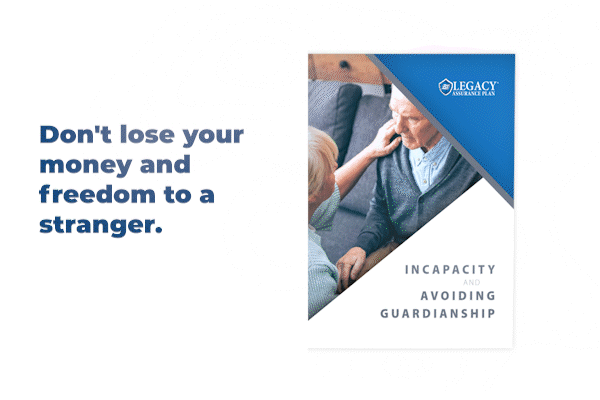The issue of adult guardianship and conservatorship has come under intense scrutiny in recent years, highlighting the delicate balance between protecting vulnerable adults and preserving individual rights. These legal arrangements, originally designed to safeguard those unable to care for themselves, have faced mounting criticism due to high-profile cases of exploitation and abuse. As a result, a wave of reform efforts has emerged at both state and federal levels, aiming to address systemic flaws and enhance protections for individuals under guardianship.
The push for guardianship reform stems from a growing recognition of the potential for abuse within the current system. Cases across the United States have exposed how guardians, entrusted with significant power over their wards' lives and assets, can sometimes exploit this authority for personal gain or make decisions that run counter to the ward's wishes. These incidents have not only raised alarm among advocacy groups and policymakers but have also sparked a broader conversation about the rights of individuals under guardianship and the need for more robust oversight mechanisms.
Understanding the guardianship crisis in America

Consider three notable cases that have exposed serious flaws in the guardianship system and sparked calls for reform across the United States.
In Florida, the case of Rebecca Fierle, a professional guardian, sent shockwaves through the state's guardianship system. Fierle faced criminal charges for abuse and neglect of her wards, with one of the most egregious allegations being her practice of placing "do not resuscitate" (DNR) orders without consent.
The case came to light in 2019 when one of Fierle's wards, Steven Stryker, died in a Tampa hospital after choking. Investigators had alleged that Fierle had placed unauthorized DNR orders on numerous wards across multiple counties and double-billed a hospital and her ward’s account for her services without disclosing this conflict of interest to the courts. In 2023, Fierle eventually pleaded no contest to the charge of neglect of an elderly person.
The Fierle case exposed significant oversight failures in Florida's guardianship system. It revealed how a single guardian could amass hundreds of wards across multiple counties, making effective monitoring nearly impossible. In response to the scandal, Florida lawmakers passed legislation in 2020 to reform the state's guardianship system, including stricter oversight and limitations on guardians' powers.
In Arizona, the case of Marie Long exemplifies how the guardianship system can sometimes fail to protect the very assets it is meant to safeguard. Long, an elderly woman, lost an estate valued at over $1 million in fees and expenses charged by her court-appointed guardian and attorneys.
Long's case is particularly troubling because it demonstrates how the legal and financial complexities of guardianship can lead to the rapid depletion of a ward's assets. The excessive fees charged by professionals involved in her case raised questions about the lack of meaningful oversight and the potential conflicts of interest that can arise when those in positions of responsibility have financial incentives to prolong or complicate guardianship proceedings.
The Long case led to increased scrutiny of guardianship fees and expenses in Arizona and prompted calls for greater transparency and accountability in the guardianship system. It also highlighted the need for better mechanisms to protect wards' assets and ensure that guardianship services are provided in a cost-effective manner.
What happened to Britney Spears?

A widely publicized case that exemplifies the potential for individuals to be placed under guardianship against their will and subsequently lose control of their assets and personal relationships is that of Britney Spears. This case gained significant media attention and sparked public debate about conservatorship laws.
Britney Spears, the world-famous pop star, was placed under a conservatorship in 2008 following public struggles with her mental health. The conservatorship, which is similar to guardianship, gave her father, Jamie Spears, and other appointed conservators control over her personal affairs and finances.
Here are some widely reported facts about the case:
- The conservatorship lasted for 13 years, from 2008 to 2021.
- Spears lost control over major personal and financial decisions. This included restrictions on her ability to drive, control her own schedule or make decisions about her medical care.
- Her conservators had control over her multi-million dollar estate and made decisions about her career.
- The conservatorship affected her personal relationships, including restrictions on who she could see and date.
- Spears alleged that she was forced to work against her will, was not allowed to remove her IUD to have more children and was put on psychiatric medication against her wishes.
- The case sparked the #FreeBritney movement, with fans and advocates arguing that the conservatorship was unnecessary and abusive.
- In 2020, Spears began actively fighting to end the conservatorship, culminating in her emotional testimony in court in June 2021.
- The conservatorship was finally terminated by a Los Angeles judge in November 2021.
This case highlighted how even high-profile, seemingly capable individuals can lose their autonomy through legal guardianship arrangements. It brought national attention to the potential for abuse within the guardianship system and sparked discussions about reform.
Key initiatives in guardianship reform
One push in guardianship reform has been the call to protect the post-adjudication rights of those subject to guardianship. This movement aims to create state-based, statutory bills of rights that affirmatively enshrine in state law the rights retained by those under guardianship. These efforts reinforce the idea that legal personhood is not lost when a guardianship is granted and serve to clarify the purpose of guardianship, the role of the guardian, and the obligations of the court and attorneys involved.
A broader push for the creation of bills of rights can largely be traced to the recommendations resulting from the Fourth National Guardianship Summit in 2021. The summit delegates recommended that the National Guardianship Network convene a task force to develop an enforceable bill of rights that could be passed by state legislatures and utilized by courts and others. This recommendation directed the task force to consider rights that ensure dignity, privacy, autonomy, and the opportunity to fully participate in decisions.
While the focus on post-adjudication rights is crucial, it is just one aspect of the wide-ranging reform efforts currently underway.
National and state-level guardianship reform efforts

Growing concerns about abuse within the guardianship system have prompted both state and federal governments to initiate various reform efforts:
- Uniform Guardianship, Conservatorship and Other Protective Arrangements Act (UGCOPAA). Developed by the Uniform Law Commission in 2017, this model act aims to standardize guardianship laws across states and promote less restrictive alternatives. As of 2024, only Washington, Idaho, Alaska, Hawaii, Colorado, Minnesota, Alabama Maine, Massachusetts, the District of Columbia and Puerto had enacted or introduced legislation based on UGCOPAA. The act provides a comprehensive framework for reforming guardianship laws, including provisions for limited guardianships, supported decision-making and enhanced procedural protections for individuals subject to guardianship proceedings.
- Federal legislation. The Guardianship Accountability Act, has been introduced in Congress and seeks to create a national resource center for guardianship information and establish federal grants to help states improve their guardianship systems. This legislation aims to address the lack of consistent data and best practices across states by providing a centralized resource for information and support. Additionally, the federal grants would enable states to implement reforms and improve their guardianship systems more effectively.
- State-level reforms. Many states have implemented or proposed reforms to address specific issues within their guardianship systems. These reforms include mandatory training for guardians. Recognizing the complex responsibilities of guardians, many states now require comprehensive training programs to ensure guardians are well-equipped to fulfill their duties. States are implementing stricter reporting requirements and more frequent court reviews to ensure guardians are acting in the best interests of their wards. Also, to address the lack of comprehensive data on guardianships, states are developing better systems for tracking and analyzing guardianship cases.
- Stricter requirements for establishing guardianships. Many states are raising the bar for when guardianships can be imposed, requiring clear evidence of incapacity and exploring less restrictive alternatives first.
- Increased focus on supported decision-making as an alternative. States are recognizing the importance of preserving individual autonomy and are promoting supported decision-making arrangements as a less restrictive alternative to full guardianship.
- National Guardianship Network. This coalition of organizations works to improve guardianship practices through education, research and advocacy. The network plays a crucial role in disseminating best practices, conducting research on guardianship issues and advocating for reforms at both the state and federal levels.
- WINGS (Working Interdisciplinary Networks of Guardianship Stakeholders). These state-level groups bring together various stakeholders to address guardianship issues and implement reforms. WINGS groups typically include representatives from the courts, adult protective services, disability rights organizations, and other relevant agencies. By fostering collaboration among these diverse stakeholders, WINGS groups can identify and address systemic issues within the guardianship system more effectively.
How can I prevent an unwanted guardianship?

Proactive estate planning is crucial in preventing unwanted guardianships. Here are key strategies to consider:
- Durable power of attorney (PoA). This document allows you to designate someone to manage your financial affairs if you become incapacitated. Ensure your PoA is comprehensive and clearly outlines your agent's authority.
- Health care power of attorney. This appoints someone to make medical decisions on your behalf if you're unable to do so.
- Living will/advance directive. This document specifies your wishes for end-of-life care, reducing the likelihood of disputes that could lead to guardianship proceedings.
- Revocable living trust. By transferring your assets to a trust, you can designate a successor trustee to manage them if you become incapacitated, potentially avoiding the need for a conservatorship.
- Supported decision-making agreement. This alternative to guardianship allows you to appoint trusted individuals to help you make decisions without surrendering your legal rights.
- Regular updates. Review and update your estate planning documents regularly to ensure they reflect your current wishes and circumstances.
Conclusion
The ongoing efforts to reform the guardianship system reflect a growing recognition of the need to balance protection with personal autonomy. As states and federal agencies continue to implement new laws, policies and practices, the focus remains on creating a more transparent, accountable and person-centered approach to guardianship. These reforms aim to preserve the rights and dignity of vulnerable adults while still providing necessary protections. While significant progress has been made, the cases highlighted in this article serve as a stark reminder of the importance of continued vigilance and improvement.
As society evolves, so too will approaches to caring for those who need assistance. The ultimate goal of these reform efforts is to ensure that guardianship truly serves its intended purpose: protecting and empowering vulnerable individuals rather than diminishing their rights and quality of life. In the meantime, proactive estate planning and the use of legal documents such as powers of attorney, advance directives and revocable living trusts can help prevent unwanted guardianships.



